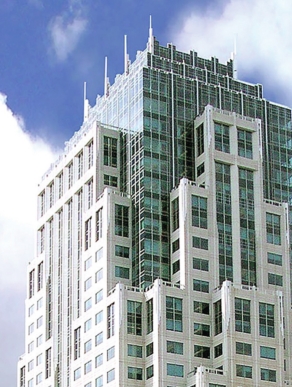
One Lincoln has become a symbol of the meltdown of Boston’s office marketDon’t look now, but a financial tsunami is headed straight towards Boston’s gleaming skyline.
Boston developers, their soaring office high-rises emptied by the shift to remote work, are pushing for property tax abatements right and left, with more than $1 billion in tax revenue at stake in the coming years, the Boston Policy Institute has reported.
And when that storm finally washes ashore in the form of adverse court rulings ordering the city to pay up, Boston may need to borrow heavily to deal with the fallout.
Such is the dire message that Henry Kara, a top Boston tax appeal attorney, recently delivered to Boston Mayor Michelle Wu, Contrarian Boston has learned.
Kara has urged the mayor to seek permission from the state Legislature to float bonds that could be used to pay for a flood of multimillion-dollar court judgments in favor of property tax appeals by various tower owners.
The idea would be to take a page from what Boston did decades ago, when, in the wake of the 1979 Tregor decision, it issued bonds backed by a series of new taxes and fees on everything from hotels to jet fuel used at Logan.
A
state court ruled that Mayor Kevin White’s administration had
systematically overtaxed owners of struggling office buildings, putting
the city on the hook for $100 million in payments, or the equivalent of
more than $400 million today.
While Boston is a much wealthier city today, the potential fallout is still likely to come with a steep price tag.
How
big a hit? Well, Kara had previously estimated it could be $100 million
just for fiscal 2024, with these disputes typically taking years to
resolve.
Meanwhile, a
number of major property tax cases filed by Boston tower owners are now
working their way through the court system, with more cases on the way.
Larry
DiCara, president of the Boston City Council when the Tregor decision
came down, thinks the city will be able to cover any property tax losses
from a combination of reserves and money specifically set aside for
appeals.
That said, making predictions can be tough given the growing distress in the office market.
The
One Lincoln tower, State Street’s former headquarters, recently sold
for just $400 million, or less than what it had been refinanced for just
a couple years ago.
“Nobody can predict anything at this point,” DiCara, a top local real estate lawyer, told Contrarian Boston.
Scott van Voorhis is a longtime Boston reporter specializing in real estate and is the publisher of Contrarian Boston.